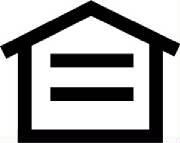|
OmahaApartment.com |
|
|
About Us Your Personal Safety is important:
Please be aware that phone numbers, web site addresses, and listing agents can change especially for
condo rentals and small propertys. Infrequently but occasionally, scammers without an interest in the property have been
known to dupe those seeking housing. Ues caution when giving out personal information and do not send money to strangers.
 What Housing Is
Covered? The Fair Housing Act covers
most housing. In some circumstances, the Act exempts owner-occupied buildings with no more than four units, single-family
housing sold or rented without the use of a broker, and housing operated by organizations and private clubs that limit occupancy
to members. In the Sale and Rental of Housing: No one may take any of the following actions based on race,
color, national origin, religion, sex, familial status or handicap: In Mortgage Lending: No one may take any of the following actions based on race, color, national origin, religion,
sex, familial status or handicap (disability): In Addition: It is illegal for anyone to: If you or someone associated with you: your landlord may not: Example: A building with a "no pets" policy must allow a visually impaired
tenant to keep a guide dog. Example: An apartment
complex that offers tenants ample, unassigned parking must honor a request from a mobility-impaired tenant for a reserved
space near her apartment if necessary to assure that she can have access to her apartment. However, housing need not be made available to a person who is a direct threat
to the health or safety of others or who currently uses illegal drugs. In buildings that are ready for first occupancy after March 13, 1991, and have an elevator and four or more units: If a building with four or more units has no elevator and will be ready for first occupancy
after March 13, 1991, these standards apply to ground floor units. These requirements for new buildings do not replace any more stringent standards in State or local law. Unless a building or community qualifies as housing for older persons, it may
not discriminate based on familial status. That is, it may not discriminate against families in which one or more children
under 18 live with: Familial status protection also applies to pregnant women and anyone securing legal custody
of a child under 18. Exemption: Housing for
older persons is exempt from the prohibition against familial status discrimination if: A transition period permits residents on or before September
13, 1988, to continue living in the housing, regardless of their age, without interfering with the exemption. HUD
is ready to help with any problem of housing discrimination. If you think your rights have been violated, the Housing Discrimination Complaint Form is available for you to download, complete and return, or complete online and submit, or you may write HUD a letter, or telephone
the HUD Office nearest you. You have one year after an alleged violation to file a complaint with HUD, but you should file it as soon as
possible. |